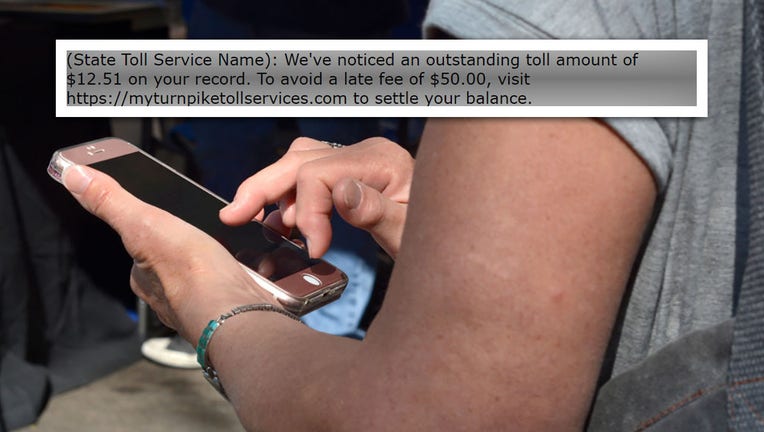FBI alert: SMS phishing scam targeting highway toll customers – what to know

FILE - A man uses his smartphone in Santa Fe, New Mexico, with the FBI's example of SMS phishing. (Photo by Robert Alexander/Getty Images)
The FBI is warning Americans nationwide about an increasingly-reported scam involving fake text messages attempting to collect money from highway tolls.
The agency issued an alert this week about the scam, noting how it has received over 2,000 complaints since early March about SMS phishing, or "smishing," in at least three states.
"The texts claim the recipient owes money for unpaid tolls and contain almost identical language," the FBI said. "The ‘outstanding toll amount’ is similar among the complaints reported to the (FBI Internet Crime Complaint Center)."
"However, the link provided within the text is created to impersonate the state's toll service name, and phone numbers appear to change between states," the FBI added.
The Pennsylvania Turnpike has been at the forefront of the impacted services, proactively advising its customers to avoid interacting with these fraudulent messages. Similarly, the Pennsylvania State Police have expressed their concern, highlighting that the scam texts redirect to counterfeit websites designed to steal personal data.
The FBI said it believes the scam may be moving from state-to-state.
Meanwhile, customers of E-ZPass – an electronic toll collection system used across various parts of the U.S. – have also been under threat since the onset of these attacks, according to FOX News. While this detail was not directly mentioned in the FBI's public service announcement, secondary sources tracking the issue confirmed it, FOX News reported.
What to do if you receive a toll scam text message

2019 video: IRS warns of phishing scam that utilizes imposter emails
The emails are unsolicited communications containing links that show an IRS.gov-like website.
Anyone who receives a text message that they believe could be part of this highway toll smishing scam, the FBI advises doing the following:
- File a complaint with the FBI Internet Crime Complaint Center at www.ic3.gov, and be sure to include the phone number from where the text originated and the website listed within the text.
- Check your account using the toll service's legitimate website.
- Contact the toll service's customer service phone number.
- Delete any smishing texts received.
- If you clicked any link or provided your information, take efforts to secure your personal information and financial accounts. Dispute any unfamiliar charges, the FBI says.
This story was reported from Cincinnati. FOX News contributed.

